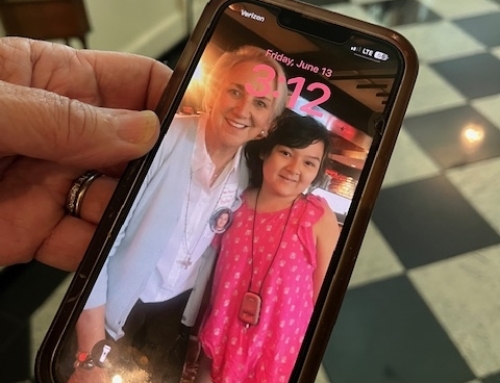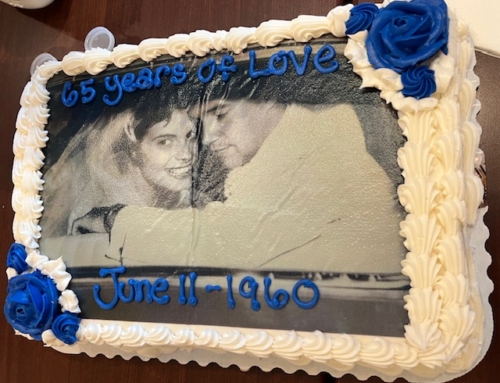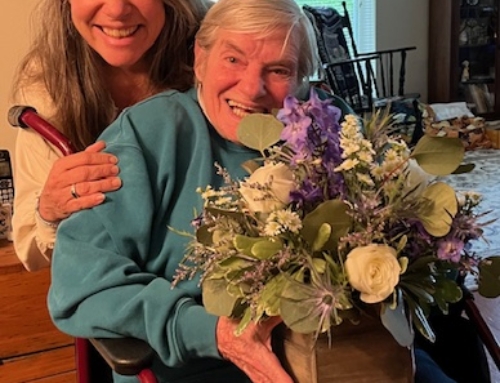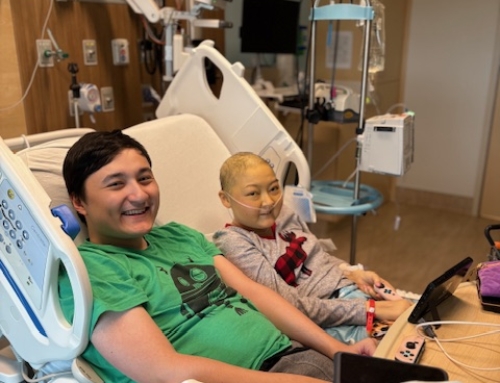
Good morning…
This morning, I have the privilege of taping a podcast on grief with nurse practitioner, Ginna MacFarling, and Northside Church’s Director of Adult Discipleship, James Johnson. Having walked beside many through the grieving process, twice Ginna has helped to lead our well-loved six-week series, “Living Fully – Dying Well.”
Preparing for our podcast, Ginna gathered some of her favorite quotes on grief, and, to put my finger on the pulse of our faith community, I emailed about twenty people who have taught me personally about the process of grief over the years. One person who responded was Ron Greer, author of one of my favorite books on grief, Markings on the Windowsill.
Ron has a new article being published which he graciously shares with us.
******
Grieving Without Hugs by Ron Greer, Pastoral Counseling Service, Peachtree Road United Methodist Church
Our son died many years ago, long before the isolation of the pandemic. My family and I were embraced with support in every way. Embraced with hugs, handshakes – the kind where they shake with their right hand and their left squeezes your arm, and all those face-to-face conversations over coffee or lingering lunches where friends shared their empathy with warmth and concern. They asked how we were doing and wanted to know.
Then the pandemic and all its restrictions came over us. Masks, physical distancing, isolation.
My wife died several weeks ago. There have been no hugs apart from immediate family, no handshakes, no squeezing of the arm, no face-to-face expressions of care and concern without a mask or plenty of distance. At the very time those who are mourning need closeness, Covid insists on distance. Much of the personal intimacy needed by those who grieve has had to be sacrificed for the greater good of physical health. Medically, so much has been gained. Emotionally, so much has been lost. Something is diminished when empathy is muffled by a mask and voices have to be projected from a safe distance away.
So we keep our distance. Which means the house is quiet. So, so quiet. Everything is still. The loneliness is pervasive.
I write this from the vantage of one who is as surrounded – physically distanced, to be sure – by as much support as one could imagine. Do not feel sorry for me. I have family, dear friends, church members, and others in my community. I write this piece for those who may not be as fortunate as I. Yet as blessed as I am, I also get it. I, too, know something of the loss within the loss – the loss of personal, face-to-face support within the loss of a loved one.
Those who specialize in the study of such things write of the power of the human touch. It connects us with each other. It opens the pathway of trust by which we can be vulnerable with our pain and receive their concern and compassion. It allows us to take in the loving empathy of those who care and want to be near us. We understand that, and just as we resonate with it, we remember: we must be six feet apart, wearing masks, with sticky hands.
I am lonely. I am chiefly lonely for my precious wife. But during this Covid separation I am also lonely for relationship, face-to-face relationship with those who matter to me. I need the companionship, the company, the support. I need the closeness of friendship. I need the laughter and foolishness for a change of pace, and I need them to ask me how I am doing. I need the chance to tell them, to say it out loud, to talk through my tears, and to be loved by their listening.
“How are you doing?” is such a simple, yet profoundly welcomed question for those who mourn. It is an invitation to be real, to go deep, to be transparent in the presence of someone who is willing and able to accompany you on that path of your journey. It is a gift. A precious, priceless gift of themselves at just the moment you need it most.
The work of grief is a task we each ultimately do within, each on our own. Oh, but the difference it makes in being surrounded by loving support. It renews us, it gives us the energy for the task of mourning we must then reengage. Which brings us back to our dilemma. We need to quarantine because of the pandemic at the very moment those who mourn need closeness as never before.
Clearly, those who want to be supportive play the hand they have been dealt the best they can. And I am here, from the frontlines of grief, to report that for those who really want to reach out and care, there is still the means to do it. You can make a difference in spite of the pandemic.
Despite the current limitations, we can still make a compassionate impact that matters. It makes a difference, especially during Covid, to receive a card or an email or a text or a call or an invitation to an across-the-patio cup of coffee. In this era these are our means by which we express our love, our vehicles by which we can still deliver our compassion to those who need it most.
I confess. I had always thought of a sympathy card as being a polite, formal gesture of condolence. Well intended. Well done. But rather lightweight. I was wrong.
I have a long, steep driveway to walk back from the mailbox each afternoon. For those who send cards to the bereaved, please know there have been days I have been in tears before I got back up to the house. I had not yet read your card. I had not even opened it. Yet my heart was already touched, and exceedingly appreciative, that you thought to write.
Back at the kitchen table I opened it. You wrote of Karen and the exemplary life she lived. You wrote to me of your love and support during this difficult time. More tears came. They needed to. To express my grief, through tears or words, is the only way to get through this valley. To give it a voice. You may have thought you were just sending me a card. No. You sent me a lifeline. You sent me a means to do the work today, to engage the task of mourning I need to engage. You facilitated connecting me with my tenderness as you embraced me with your support, in one of the few ways you could.
As I am writing this now, God as my witness, I just received a text from a dear friend with a musical selection he felt might inspire my morning – as I am mourning. He knows a remarkable breadth of music and has sent me a different selection virtually every morning since Karen died. Yes, we can play the pandemic-limited hand we are dealt for those who are grieving, and play it beautifully and meaningfully!
No, we cannot reach out and hug those who need hugs so badly. But we can embrace them in countless, creative ways. And our empathy and our compassion tell us we must.
Will it be the same? No. Will it be as personal, as intimate? No. Will it make an important difference? Yes. Absolutely. Yes, it will.
Reach out. Care openly to someone who needs you in any way you can. Do it now.
******
Ron later shared an additional thought: “I think my favorite quote regarding grief is not actually about grief itself but the result of successful mourning. It was from Karen Greer a few weeks after our son died. She said, ‘We are going to make it through this and have fun and enjoy ourselves again. Because if we don’t, then Eric will not have been the only one who died.’ I hope this is useful.”
Useful, very useful, and so very gracious of Ron to share his raw and his real with such loving generosity.
How much longer must I cling to this constant grief? I’ve endured this shaking of my soul (Psalm 13:2a, TPT).
…Sue…
P.S. Thank you, Corinne Adams, for the expressive opening photo. And thank you, Martha Tate, for being the catalyst for our connection with Ron.





